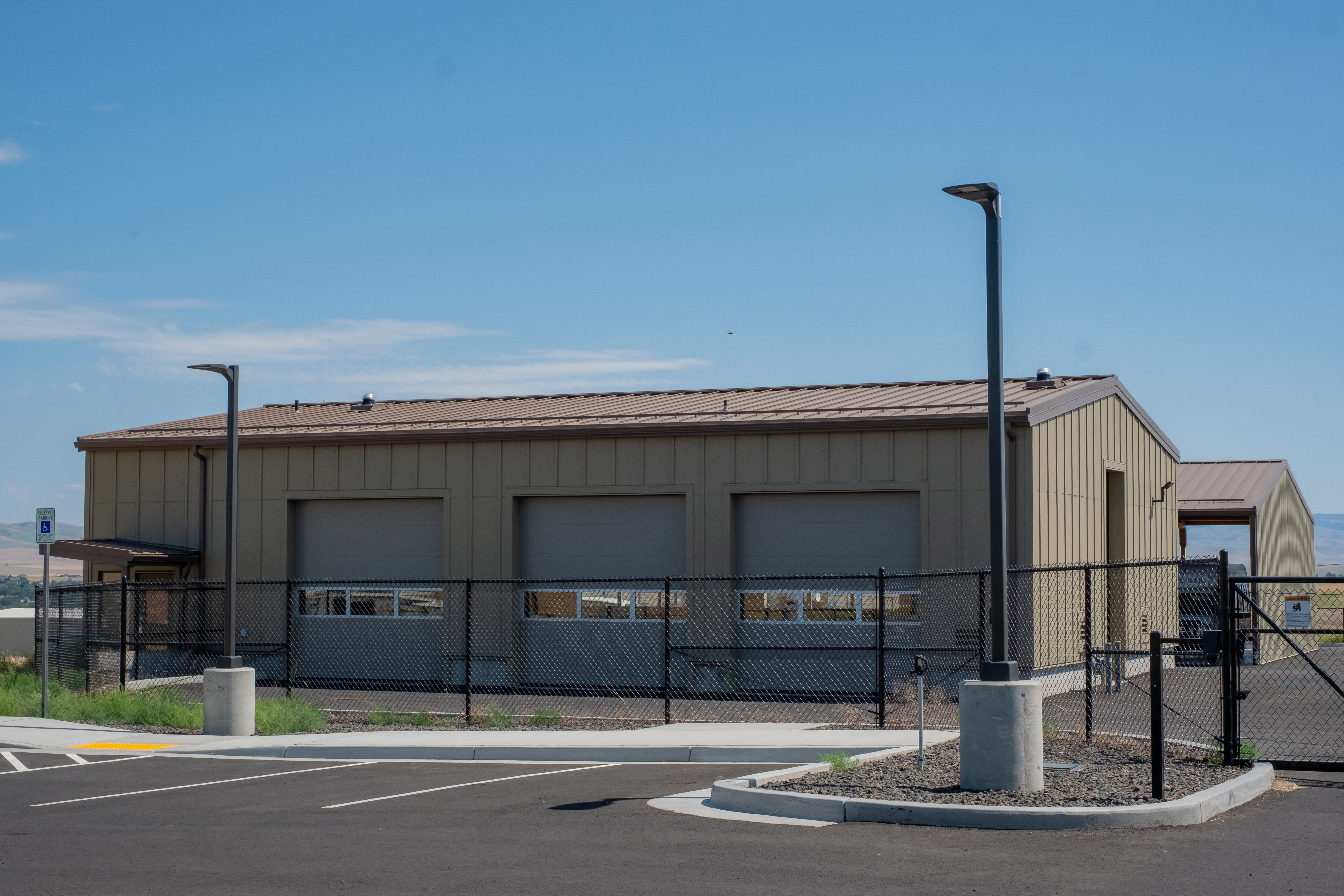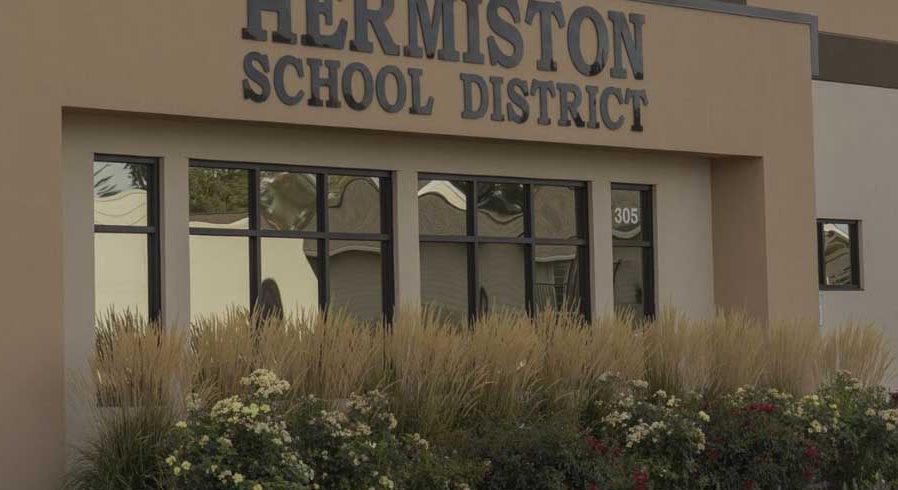BOARDMAN County’s dairy cow population to hit 100,000
Published 6:30 am Friday, March 31, 2017

- Jersey cows queue up to be milked at Columbia River Farms recently outside of Bordman.
Despite a flood of opposition from environmentalists and small farm advocates, Oregon regulators have agreed to permit what will become the state’s second-largest dairy in Morrow County.
Lost Valley Farm will add 30,000 cows on 7,288 acres at the former Boardman Tree Farm, just 25 miles from where Threemile Canyon Farms operates an even larger dairy with 70,000 head of cattle.
The Oregon Department of Agriculture and Department of Environmental Quality announced Friday they have issued what’s known as a National Pollutant Discharge Elimination System permit for Lost Valley, which outlines how the dairy will manage its wastewater and manure — about 187 million gallons annually.
With the permit now in hand, Lost Valley will start milking cows sometime in the next few weeks. The dairy will start out with 16,500 animals before gradually building the full herd.
Greg te Velde, the California dairyman behind Lost Valley Farm, is no stranger to Eastern Oregon. He established Willow Creek Dairy in 2002 on land leased from Threemile Canyon Farms. The milk is sold to Tillamook Cheese, which runs a large cheese-making plant at the nearby Port of Morrow.
In late 2015, te Velde purchased land at the Boardman Tree Farm in order to relocate and expand his business. But first, he needed state approval for a new confined animal feeding operation, or CAFO.
ODA and DEQ received more than 4,200 public comments about the proposal, with opponents railing against the dairy’s impact on air and water quality. Environmental groups argued Lost Valley would produce as much waste as a mid-size city, while being totally exempt from air quality controls.
Ultimately, officials decided to sign off on the proposal while requiring “the most extensive monitoring of any CAFO permitted facility to date.”
Lost Valley plans to operate in a closed-loop system, similar to Threemile Canyon Farms. Most of the waste generated by cows will be recycled and used as irrigation for 5,000-plus acres of farmland, growing crops such as corn, wheat and alfalfa to feed the animals.
Because Lost Valley is located in the Lower Umatilla Basin Groundwater Management Area — a region known for having elevated levels of nitrates in groundwater — the agencies have crafted a permit they say will be extra protective of the local aquifer.
Among the requirements, Lost Valley must establish 11 groundwater monitoring wells, which is seven more than usual. The dairy must also use a double synthetic liner with leak detection in its waste lagoons to protect groundwater.
Te Velde said Lost Valley has agreed to everything stipulated in the permit, and will continue to work with the state and communities as they begin operations.
“We believe that a well-run dairy should proactively implement environmental protections and earn its place in the community,” te Velde said in a statement Friday.
The Oregon Department of Agriculture says it will inspect Lost Valley at least three times per year to ensure they are in compliance. CAFOs are typically inspected only once every 10 months.
“We are visiting them on a very frequent basis,” said Lisa Hanson, deputy director of ODA.
A coalition of environmental groups that has long opposed Lost Valley remains unconvinced. They released a statement Friday saying the dairy poses significant risks of pollution and long-term impacts to the Umatilla Basin and Columbia River.
The same coalition is now working to protest a water rights transfer for the dairy, which would swap some of the dairy’s existing Columbia River water right with a neighboring landowner in exchange for groundwater.
“People are working hard to restore stream flows for salmon and protect groundwater aquifers,” said Brian Posewitz, staff attorney for WaterWatch of Oregon. “Adding 30,000 cows to an overtaxed system undermines hard work to protect limited water resources.”
Liz Fuller, a spokeswoman for Lost Valley Farm, said the transfer relates to water quality and timing. Without a substantial upgrade in the irrigation canal system, the dairy will not be able to deliver Columbia River water outside of the normal irrigation season.
Lost Valley does have a few backup plans in case the water rights transfer does not go through, Fuller added, including purchasing drinking and process water from the Port of Morrow if necessary.
“That shouldn’t be a problem,” she said.
By permitting Lost Valley Farm, the coalition also says it points out a gaping loophole in Oregon law that exempts large dairies from monitoring and reducing air pollution. Groups are hoping to address that problem through Salem with Senate Bill 197, which would follow through on air quality controls for dairy farms originally put forth by a state task force nearly a decade ago.
“We’re hopeful that elected officials will be held accountable by constituents that have to breathe the pollution from these facilities,” said Lauren Goldberg, staff attorney for Columbia Riverkeeper.
SB 197 is currently being looked at by the Senate Environment and Natural Resources Committee. According to a press release, Lost Valley plans to build a methane digester in the next two or three years to cut down on air emissions at their farm.
At full build-out, Lost Valley will create 125-150 union jobs for Morrow County. Don Russell, a Morrow County commissioner, said those jobs are crucial with the closure of the Boardman Tree Farm and Upper Columbia Mill. Increased agriculture also means increased food production at local processing plants, he added.
“The whole thing is woven together,” Russell said. “We just look forward to continued growth.”
While the county initially had questions about how the dairy would be managed, Russell said they have always supported the project. The environmental protections go “above and beyond” what the state normally requires, he said.
Rep. Greg Smith (R-Heppner) said the project is a win for the region, and a win for the state as a whole.
“This project is a result of collaboration between the state of Oregon, which has held this dairy to our high standards, and an applicant willing to work with regulators and community members,” Smith said. “It demonstrates we can welcome projects without compromising our high standards for protecting the environment.”
———
Contact George Plaven at gplaven@eastoregonian.com or 541-966-0825.





